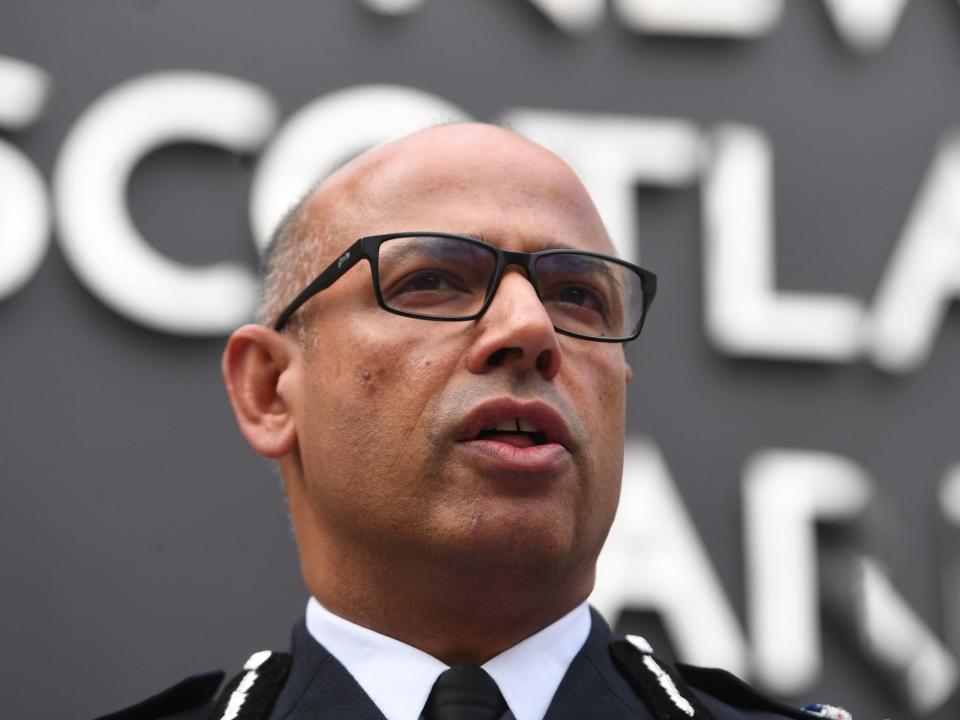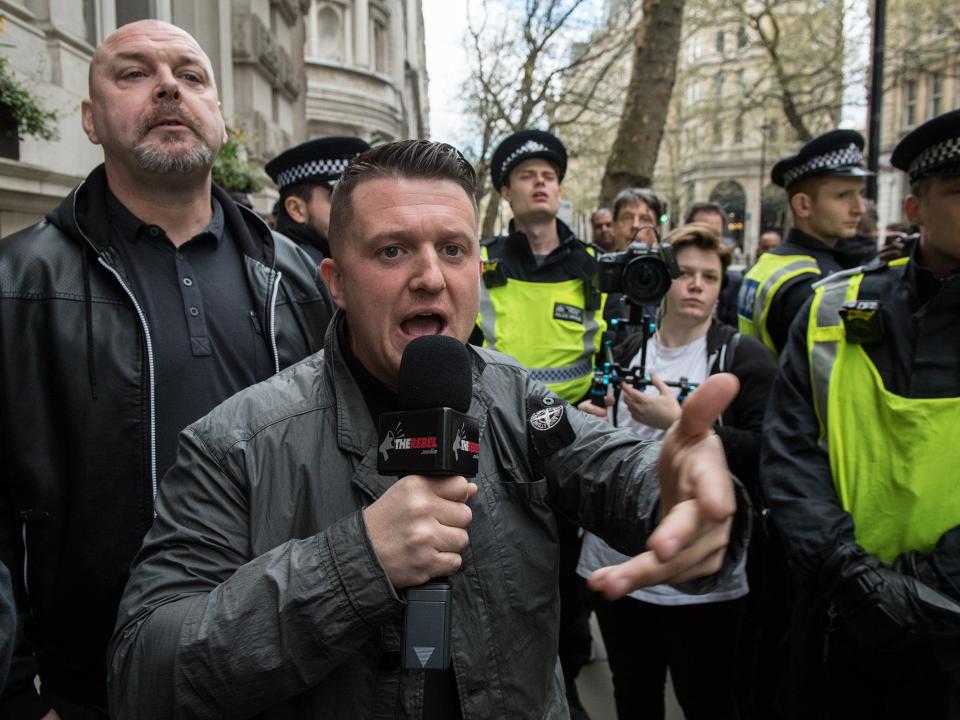Online extremism ‘cannot be policed’, says head of UK counter-terror police

Metropolitan Police assistant commissioner Neil Basu says terror threat is ‘diverse and complex’
(PA)Extremism has become so widespread online that it “cannot be policed”, the head of UK counter-terror policing has said.
Campaigners have called for more action against hateful material, but concerns over potential infringements of civil liberties have sparked a parliamentary inquiry on freedom of expression.
Riots at the US Capitol in Washington have reignited international debate about how extremist content and conspiracy theories should be tackled.
The British government is assessing official recommendations to create a legal definition of extremism, which could be used to criminalise material that currently falls short of the law.
Metropolitan Police assistant commissioner Neil Basu warned that a low legal threshold could leave police “overwhelmed” by cases.
“When you look at the volume of material which is horrific, shouldn’t be allowed online and is really distressing for a lot of people, the volume is so high it cannot be policed,” he told The Independent. “It would have to be prevented and that is the most important thing.”
Mr Basu said the Online Harms Bill, which proposes internet regulation that would force companies to remove material or face multimillion pound fines, was “fundamental” to combating the issue.
“The thing that has always been my biggest concern is the growth of online radicalisation,” he added.
“It has allowed conspiracy theories and existing Islamist and extreme right-wing terrorism, and all kinds of other single-issue terrorism, to thrive 24/7 internationally at the speed it takes to press a button.”
The senior officer said counter-terror units had seen a “rise in propaganda by all sides” during the coronavirus pandemic.
He warned the combination of Covid restrictions, isolation, mental illness and increasing time spent online created a “perfect storm”.
“Radicalisers are trying to find vulnerable, malleable people who are easily seduced,” Mr Basu said.
“The way to stop the very high threat and tempo [of attack planning] is to stop people becoming terrorists in the first place.
“Too much emphasis is on people coming out of prison, people returning from abroad and whether we can deradicalise them.
“That isn’t the cure for this. The cure for this is getting them before radicalisers really get to grips with them, and steering them to a different path.”
The bulk of work carried out so far by social media companies has focused on content from banned terrorist groups, such as Isis and National Action.
But several terror attacks have been inspired by extremist material that did not break the law, such as the 2017 Finsbury Park attack and 2019 Stanwell stabbing.
Mr Basu said that even in the case of Isis supporters, police find a large amount of legal “mindset” material alongside terrorist propaganda.
“We see this material with everyone we charge and a lot of it is inciting people to violence,” he added.
“How much of that we allow and the threshold we set is an incredibly important public conversation.”

The Commission for Countering Extremism, which was created by ministers in 2017 to advise what “tools, policies and approaches” were needed, has called for a new definition of “hateful extremism” that could be used by law enforcement.
It would include “persistent hatred”, hostile beliefs directed at certain groups and material that makes the “moral case for violence”.
The commission’s report was published in October 2019 but the government has not responded to the recommendations or signalled whether it will adopt them.
The current lack of a legal definition of extremism has been blamed for driving a “weak” response, amid reluctance among companies and public bodies to draw the line themselves.
“One of the most important things is having a definition that policing can work with,” Mr Basu said. “We can’t do anything about it if it’s not criminal, and neither should we.”
Research published by the Crest Advisory consultancy last month found that police struggled to define and separate extremism, hate crime and terrorism, while many prominent extremists have been claiming to defend freedom of speech when facing legal action or social media takedowns.

A report published by the Investigatory Powers Commissioner on 15 December said clarity was needed to ensure that police were seizing electronic devices or communications data only for suspected criminal offences, and balanced freedom of expression.
“We identified a small number of cases where the police have investigated those who have sent messages which may upset the local community but, in our view, are a long way short of being grossly offensive,” it added.
“We will remain vigilant in this area as we recognise the police are often called upon, and feel pressure to address non-criminal social issues.”
Parliament’s Joint Committee on Human Rights is currently taking evidence on freedom of expression, and the inquiry will look at police guidance and whether new laws are needed.
The Home Office said it was still considering the Commission for Countering Extremism’s recommendations and will respond in due course.
“The government is committed to tackling those who spread extremist views which promote violence, hatred and division against individuals and communities in our society,” a spokesperson added.
“We remain focused on disrupting the activities of the most dangerous extremists, supporting those who stand up to extremism and preventing people from being drawn into terrorism.”
Read More
Extremism rising because of ‘weak’ government response
Coronavirus creating ‘climate of extremism’ in UK, MPs told
Counter-terror protection for Covid vaccination centres
Isolation could push young people into extremism, police warn

 Yahoo Finance
Yahoo Finance 